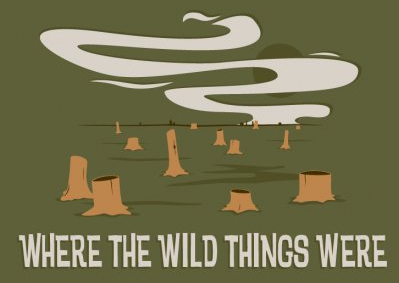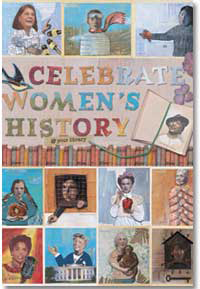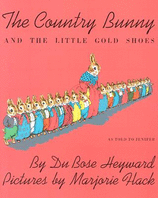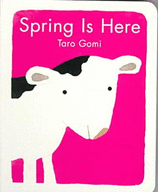Last summer I was contacted by a reporter from Publishing Trends who was writing an article about adult authors writing for the children’s and young adult markets. She asked me several questions to which I e-mailed her some rather lengthy responses, snippets of which appeared in the final article, which I highly recommend reading.
I’ve been seeing a lot of adult authors’ names appearing on this year’s Spring and Summer lists and for that reason I’ve been thinking again about that Publishing Trends article and my answers to their interview questions. I thought I’d reprint my answers here to see if any of you have any particularly strong reactions to them, or thoughts about this subject.
(Note that we are not talking about "celebrity books" here, but books by practiced authors of books for adults, some of whom have now become "celebrities" in their own right, but they are "AUTHOR CELEBRITIES" — which is different from, say, film stars.)
The questions I was asked appear in red, followed by my responses.
Do you have any comments about the general trend of adult authors writing for teens/kids (think Michael Chabon, Sherman Alexie, James Patterson, etc.)?
I think that writing for children and teens is different from writing for adults. If an adult author is capable of writing for a young audience and doing so in a way that’s engaging, effective, interesting, and entertaining (all the things we’d hope for from their adult books), then GREAT! Why not have them cross over? What’s frustrating is that not all successful adult authors are actually skilled at writing for children or teens. Their books are therefore a disappointment to readers and a drain on the market. I am definitely tired of seeing poorly written or non "kid-friendly" books appear in the children’s market simply because they sport names by "big authors." To me what’s most important is that a book be good and well-suited to its audience. That’s what’s going to make it a success and that’s what’s going to keep kids reading.
I think it’s important to realize, too, that the ploy of putting a "big name" on a book is a tactic used to sell to parents, not children. The author’s name isn’t actually going to mean anything to a kid until they read the book and find that it means something to them. At THAT point they will start caring, and looking for more books by that person. Before that? Mr. "Big Name" might as well be "Mr. Nobody" for all a kid’s going to know or care.
Why do you think more authors are trying kids’ books?
I think some adult authors are discovering the high quality of children’s books on the market today by reading to their own kids. Some of them enjoy the books they’re reading with their children and then think, "I’d like to create one of these! What fun!" Or they see the impact and influence that books have on their children and are moved to want to create the same type of experience for others or to fill a gap in their child’s reading. Two of the most popular series in our store’s children’s section right now (the Percy Jackson and the Olympians series by Rick Riordan and the Ranger’s Apprentice series by John Flanagan) were both penned by authors who’d previously written books only for adults but were each compelled to write stories that would engage their sons who struggled with reading. When their "at home experiments" were successful, that was sufficient encouragement for them to then submit those "children’s stories" to publishers. And lo and behold, both of them are now world-famous — on a scale they hadn’t yet achieved through their writing for adults.
Some other adult authors are no doubt compelled to write for children because they see or hear about successes like Rick’s and John’s and figure this might be a way for them to follow suit. Or perhaps because the level of enthusiasm kids show for the books they love far surpasses anything most adults can muster, and the desire to get a piece of that excitement is pretty irresistible. Or maybe it’s because their editors encourage them to give it a go, thinking it’s a way to expand their overall readership or just probe another part of the market.
Can you give me examples of ways in which authors/publishers have reached out to you to promote these books? Any interesting publicity/marketing stunts?
I can’t think of anything particularly interesting or unusual that publishers have tried in this regard. I will say, though, that I can almost always tell when the cover of a book, the catalog copy, the marketing materials, and sometimes even the content of the book itself were produced by ADULT publishers who typically don’t edit or market or publish books for kids and teens. (As opposed to those books done by children’s publishers.) They invariably misgauge their audience on some level or use stock themes or excessive enthusiasm or just generally exhibit some sense of not quite knowing what they’re talking about. This drives me crazy! If you’re an adult author wanting to write for kids, for goodness sake try to sell your book to a children’s publisher or at least the children’s division of your usual house. THEY know the market, they know the audience, and they are considerably less likely to do things to or for your book that make us booksellers/librarians/others-in-the-know roll our eyes.
In the store, how do your customers react to these books? Do adult fans of the authors buy kids’ books for themselves or for their children?
I think there have now been enough of these books coming through the pipeline that our customers regard them with some degree of skepticism. They will ask booksellers IF, in fact, the book is actually any good, suggesting that they’ve tried other children’s or teen books written by adult authors and been woefully unimpressed. Or maybe they’re just aware that what works for them won’t necessarily work for their children. Or that reading a "children’s book" by their favorite adult author probably isn’t going to "feel" the same as reading that person’s books for adults. Whatever the case, we aren’t seeing books by big name authors (or by celebrity authors, for that matter) blowing out the door simply because of the name on their cover. But if there’s a big name on the cover AND we recommend it or they’ve read favorable reviews or they like what they read of it while they’re in the store, THEN they’re willing to take the plunge.
What types of crossovers have you seen that work particularly well? When do you think these books are less successful?
I don’t know that there’s any one type of crossover that I’ve seen work well, apart from the simple qualification of "a good, well-written book." These are what work well initially and continue to generate sales long after their immediate release. Carl Hiaasen’s children’s books, for example, are GREAT middle grade novels. They’ve continuously sold well for several years now, for that very reason. The Absolutely True Diary of a Part-Time Indian is a superb piece of literature that has been a tremendous hit with teens and adults — two audiences that I suspect are now buying up Sherman Alexie’s backlist titles at a new pace. It’s the books that just aren’t that good that by and large aren’t that successful. They aren’t the books that are going to pay off in the long run — both literally and metaphorically.
(End of interview call & response.)
****
So, now it’s your turn to opine on this subject. Have you read many great books by traditionally "adult" authors who are now attempting to write books for children an
d
teens, and if so what are they? Have you read many awful ones? Who do think has been successful at making this age leap, and why do you think it is? Do you see adult authors routinely meeting the same pitfalls when they write for a younger audience, and if so, what are they? I’d love to hear your thoughts.
And, adult authors? Listen up!



 I’ve lived in Boston for almost exactly eight years now — long enough to know that the weather here works like clockwork at this time of year, contrary to what you may have heard about the predictability of precipitation in New England. It ALWAYS snows in Boston during the first week of March. Always! Usually the snow arrives during the first weekend of the month, but sometimes it’ll arrive that Friday or Monday. Seriously. (Search the
I’ve lived in Boston for almost exactly eight years now — long enough to know that the weather here works like clockwork at this time of year, contrary to what you may have heard about the predictability of precipitation in New England. It ALWAYS snows in Boston during the first week of March. Always! Usually the snow arrives during the first weekend of the month, but sometimes it’ll arrive that Friday or Monday. Seriously. (Search the  First and foremost on my list is
First and foremost on my list is  In one of my first posts on this blog, almost two years ago, I sang the praises of
In one of my first posts on this blog, almost two years ago, I sang the praises of  If you associate spring with cleaning, you should add a copy of Sara Varon’s delightful new comics-style, wordless picture book
If you associate spring with cleaning, you should add a copy of Sara Varon’s delightful new comics-style, wordless picture book 
 One of my favorite board books is
One of my favorite board books is 





